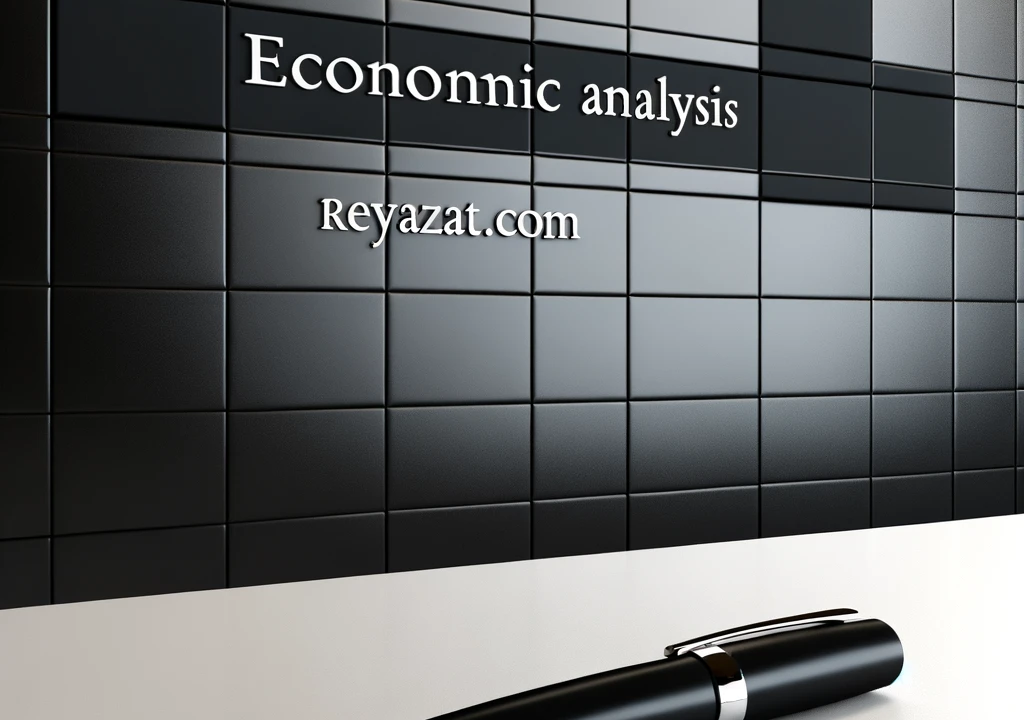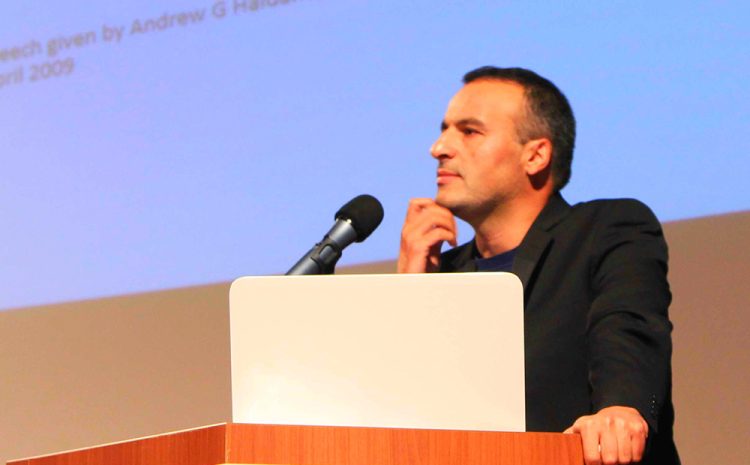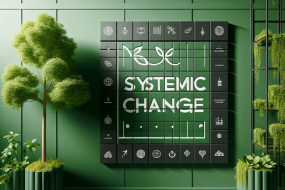
“ The Role of Purpose-Driven Entrepreneurship in Promoting Sustainability – Transitional Road to an Ecological Economy”
Dr Farhad Reyazat – London School of Banking & Finance, Biography
November 2024
Introduction
Early 21st century is characterized by unprecedented challenges of global environment and society. At the top of these challenges lies climate change, whose dire consequences for world climates, sea levels, and biodiversity loom as an existential threat to humankind and the natural world. So, this coupled with the over-exploitation possibly of natural resources and the increase of waste, and pollution has brought an urgency to act on the global scale. The deepening social inequities, with widening gaps in wealth, access to health care, education and economic prospects, have gone hand in hand with these environmental catastrophes, contributing to widening chasms between the rich and the dispossessed. Together, these environmental and social crises represent a tipping point in human history that begs the question: Should we rethink economic models and business practices that put return on investment over using scarce resources responsibly and create a society that works for all?
In this scenario, an ecological economy arises—a model that attempts to adjust economic activities to the environmental balance, prioritizing sustainability, infallibility of resources, and social equity. Instead of focusing on the commodity market, the ecological economy is based on the assumption that natural ecosystems have value in themselves, and the economic system must ensure the higher stages and the international integrity of the socio-natural sphere, degree of environmental costs in all the areas of their action diverse. This model holds that genuine economic wealth cannot be attained or maintained at the planet’s ecological and social expense. Instead, it demands holistic economic planning and decision-making, such that environmental stewardship and social responsibility underwrite business plans and national policies. An ecological economy not only addresses the issue of the environment but is also fundamental to the strength and the sustainability of human societies, one that grows its economy without eroding the ecosystem and the social fabric of society on which it relies.
Addressing these and many other urgent challenges — and the demand for a system that is a more sustainable and equitable model of the economy — has created an opportunity for purpose-driven entrepreneurship to step in as a powerful force for change. This new generation of enterprises that are not only sustainability-focused but wash profit-driven business culture away so that social and environmental goals are integrated within the business strategy. Data: 14 purpose-driven Entrepreneurs use their businesses as a force for good, solving some of the most significant issues and crises of society while also serving the community and the Planet. This is a fundamental change in how businesses view their place in society, calling for a form in which the pursuit of financial gain is inextricably interrelated with positive impacts on society and the environment.
Purposeful entrepreneurship is hailed as the ecosystem economy in action because it takes place in the context of business thriving for a planet and all its beings prosperity. Through commitment to sustainability, these enterprises not only reduce risk and spur new opportunity but also contribute decisively to the transformation to an ecological economy. Purpose-driven entrepreneurs are defining the new global economy through innovative business models, sustainable practices, and a commitment to ethical values, paving the way for a future in which economic growth is aligned with environmental sustainability and social equity.
In a world plagued by the twin challenges of environmental degradation and social inequality, the rise of purpose-driven entrepreneurship can offer a ray of hope and a sustainable route to a better tomorrow. This transformational evolution in the ethos and practice of business, is not just reacting to the challenges of our times, but proactively setting the vision for a much better future for our planet, and its people. By embracing principles of an ecological economy, purpose-driven entrepreneurs demonstrate the transformative potential of business; a new world in which power is exercised through sustainability, inclusivity and resilience.
The Urgency of Sustainability
The task of developing an approach that incorporates and considers all elements – environmental, social and economic – does not simply come about organically, rather a framework is needed such as the ecological economy system to guide actors in the journey towards sustainable development. In contrast, this model calls into question widely-accepted economic doctrines which have advocated practices leading to excessive environmental destruction and hardship for the many, and seeks to embed sustainability into the DNA of the economy. Sustainability imperatives — climate change, resource depletion, and waste and pollution — are not only environmental issues, but increasingly are also critical issues from economic and business perspectives with reverberating signals for the global economy and the business community.
Climate Change: An Increasingly Expensive Economic Problem
Climate change has emerged as one of the existential threats to global stability and prosperity. The Intergovernmental Panel on Climate Change (IPCC) predicts that, under a business-as-usual conditions, without substantial reductions in greenhouse gas emissions the world is on a path to 3–4°C warming above pre-industrial levels at the end of the century. This already dismal reality has serious ramifications, which may jeopardize worldwide supply chains, reduce agricultural yield and increase the frequency and intensity of natural disasters. The price to the economy is staggering; the National Oceanic and Atmospheric Administration (NOAA) estimates that in 2020 alone, the United States experienced 22 separate billion-dollar weather and climate disasters, collectively costing $95 billion in damages. According to the Global Commission on the Economy and Climate, the cost of inaction on climate change could exceed $69 trillion globally, by 2100.
Resource Drain: The Sustainability Paradox of Consumption
The growing waste piles described above increasingly signal the need for an alternative economic structure. “In real life, according to the Global Footprint Network, over the last 40 years of measuring this metric, they have gotten exact, we are using natural resources on the Earth today at a rate of 1.75 times what the ecosystems on Earth are capable of reconstituting.” This overconsumption results in the depletion of critical resources like freshwater, minerals, and forests, threatening ecological balance and economic stability. The World Economic Forum lists the risk of water scarcity due to over-extraction and climate change as one of the top 10 global risks, and 700 million people could be displaced due to water shortages by 2030. Beyond the cumulative environmental consequences, the loss of natural resources is a genuine danger for businesses, too; this is because the extraction of both renewable and non-renewable resources ultimately leads to increased operational expenses, inflexible supply chains, and a reduction in the raw materials available for manufacturing, projects, and products.
Waste and Pollution: The Economic Price of Unsustainability
So, waste and pollution significantly impact ecological degradation due to damage to the natural environment, which has substantial economic costs and business challenges. According to the World Bank, if production and consumption practices do not change, global waste generation will grow by 70% by 2050. The increase in waste further burdens waste management systems and causes pollution, with plastics and electronic waste particularly affecting marine life and human health. Pollution has a bio-economical horror show, after all. According to the World Health Organization (WHO), air pollution costs the global economy US$5.11 trillion per year in welfare losses and also incurs high costs for health care and lost labor productivity. Businesses pay some of these costs directly — through higher health care premiums for workers — and indirectly through reduced productivity of workers and less consumer activity in polluted areas.
Repercussions on the Business Community and the Global Economy
In the agglomerate context of climate change, resource depletion, and waste and pollution, challenges and opportunities of many shades abound for the business community. More and more companies are increasingly realizing that sustainable practices are not just ethical imperatives but also strategic bottom-line decisions. Sustainability can ripple through to increase innovation, open up markets, and bring competitiveness. Businesses that cannot respond to this reality, however, run not only the risk of reputational harm, but also of regulation — and even financial penalties. The drive towards an ecological economy is increasingly becoming the path to sustainable business viability and growth as consumers, investors and the public increasingly hold businesses to account for their environmental impact.
So, in summary: Sustainability is a must for the ecological economy system. The economic impacts of climate change, resource depletion and waste and pollution imply that we need to completely rethink how businesses are structured and how economies function. If this year has taught us anything, it is that sustainability is not just a box to tick; it is a recurrent theme underpinning not only our continued economic prosperity but also the lifeblood of future generations. The business community can set an example for this essential transition by incorporating sustainable practices into their business strategy where they will ultimately help create a more resilient, just, and sustainable global economy.
Why Purpose-Driven Entrepreneurs are Good Business
In this age of environmental awareness and social responsibility, purpose-driven entrepreneurship could be a galvanizing strategy for businesses trying to balance profit with purpose. Beyond altruism, this transition towards sustainability-oriented approaches is a strategic play that unlocks numerous benefits on a company’s bottom line, from market differentiation to innovation, operational efficiency, and profitability. As non-use values move from theory to reality and consumers seek to incorporate sustainability into their lives, the business case for purpose-driven entrepreneurship becomes even more vital (Marens 2022).
Market Trends and Consumer Demand
As the global consumer market becomes more sustainable, more consumers are looking to purchase environmentally friendly and socially responsible products and services. According to a Nielsen report released in 2021, 73% of global consumers say they would pay more for offerings if they came from a sustainable brand, with the sentiment especially pronounced among younger cohorts. This rising demand is becoming a driving force in market trends, with businesses increasingly needing to embed sustainability into their core products. Businesses adapting to this new trend are reaping the rewards of a burgeoning client base, while simultaneously bolstering brand fidelity and fostering good will with the public. Unilever’s “Sustainable Living” brands, for example, those with social or environmental mission, grew 69% faster than the rest of the business and accounted for 75% of the company’s growth.
Innovation and Sustainability
Purpose-driven entrepreneurship cultivates a spirit of innovation and exploration around new materials, technologies, and processes to mitigate impact on the environment as well as societal needs. Such a push for sustainability-inspired innovation creates new business opportunities and markets. Companies that account for sustainability in their innovation processes can advance innovation revenues by as much as 19 percent and EBIT margins by 16 percent, according to the Boston Consulting Group. Tesla, for instance, has transformed the automotive market as a result of its focus on sustainable transportation, a focus that gave it a market cap greater than that of traditional automotive companies.
Improved Operational Efficiency and Return on Investment
Implementing sustainability-based practices frequently results in improved operational processes, decreased waste, resource conservation, and therefore cost savings. Energy efficiency measures, to give one example, can so dramatically lower operational costs. According to research by the Carbon Trust, simple efficiency measures can reduce energy costs for, on average, 20%, which has the same impact on the bottom line as a 5% increase in sales. Moreover, sustainable supply chain practices can reduce risks related to resource availability and government regulations, which contribute to long-term safety and profitable business operations.
And sustainability is clearly linked to return on investment (ROI), with long-term sustainability driving financial performance. According to a McKinsey & Company study, companies with high environmental, social and governance (ESG) ratings have lower debt and equity; 80% of the studies indicate positive correlation between stock price performance and good sustainability practices. Likewise, socially responsible investment (SRI) funds that focus on companies with good sustainability performance have been booming, and assets under management have surpassed $30 trillion.
Sustainability is pragmatic — the business case for purpose-driven entrepreneurship can hardly be stronger, as more and more companies experience the rewards of practicing a sustainability-minded approach. With consumers demanding more sustainable practices and experiencing a real demand for socially and ecologically engaged businesses, those enterprises ready to incorporate these aspects into their operations innovations will succeed. The interplay of sustainability, innovation, operational efficiency, and financial performance creates a competitive advantage in the market, helping to align business as a leader in the transition to a sustainable and just global economy. The global challenge of the lack of purpose-driven entrepreneurship should become a strategic must of every 21 century sustainable business.
An Ecological Economy: What Are Business Leaders’ Responsibilities
As the global community confronts the dual crises of environmental degradation and socio-economic inequality, the transition towards an ecological economy becomes imperative. Within this transformative journey, business leaders play an instrumental role, leveraging their influence, resources, and innovation capabilities to drive meaningful change. Ambitious goal-setting, cross-sector collaboration, investment in sustainable innovations, and stakeholder engagement emerge as critical strategies for navigating this transition. By embedding these strategies into their core operations, business leaders can catalyze the shift towards a more sustainable, resilient, and equitable global economy.
Setting Highly Ambitious Goals in a Way that Aligns with Sustainability
Ambitious and measurable sustainability targets are a prerequisite to leading in an ecological economy. These goals not only show a company’s support for ecological and social governance, they help the firm track progress and promote accountability internally. More than 4,000 firms have made commitments to science-based targets, according to the Science Based Targets Initiative (SBTi), to align their corporate targets with the Paris Agreements’ goal of limiting global warming to well below 2°C pre-industrial levels.
Encouraging Inter-sectoral Cooperation
Confronting the cross-cutting challenges of sustainability requires collaboration across a diversity of industries, governments, and civil society. These systemic challenges, including climate change, depletion of finite resources, and societal inequity, are too costly for a single company to tackle. The United Nations Global Compact, the largest corporate sustainability initiative in the world, is a testament to this approach to collaboration, mobilizing more than 12,000 companies and 3,000 non-business stakeholders to align and take action under universal principles on human rights, labor, environment and anti-corruption. Through platforms like these, business leaders can partner with multiple, diverse stakeholders to collaboratively create solutions, share best practices and scale impact.
Transitioning Investments to Sustainable Innovations and Business Models
Innovation is the driving force behind the shift to an ecological economy, and business leaders are in the driver’s seat. Sustainable technologies, products and business models hold the potential to become important vectors for addressing some of our biggest environmental challenges – at the same time, they can open doors for new, lucrative markets. But global investment in clean energy must triple by 2030 to about $4 trillion, according to the International Energy Agency (IEA), in order to reach net-zero emissions by 2050. Progressive companies are already taking advantage of this trend, and the renewable energy sector saw $303.5 billion of investment in 2020 more than any other technology, demonstrating the economic reality and opportunity of sustainable innovations. Educating and Empowering all Stakeholders
Finally, business leaders are also in the position — the obligation, really — to educate and empower stakeholders about climate action beyond their own operations and the businesses of their industry colleagues. Leaders can amplify their impact by inspiring a culture of sustainability both within their organizations and beyond. It’s we need initiatives such as getting employees engaged in sustainability practices, working on consumer awareness programs, and doing community-based projects. For example, Unilever’s Sustainable Living Plan is one of the best-known approaches that both decouples the company’s growth from its environmental footprint and influences billions of consumers to live more sustainable lives, a perfect and easy explanation of the stakeholder approach and how it can affect behaviors.
The road to an ecological economy is fraught with difficulties, but the opportunities for innovation, growth and leadership that arise from it are second to none. Because of their ability to set measurable goals and to collaborate and innovate while considering a broad spectrum of stakeholders, business leaders are uniquely capable of leading this transition. To do this, they must put sustainability at the center of their strategies and operations, and become the enablers of the systemic changes that can deliver a sustainable future for all — proving that economic prosperity can indeed be achieved alongside ecological stewardship.
Conclusion
As the world grapples with increasingly severe environmental and social challenges, this move toward an ecological economy is a turning point for global business. This article has explored the strategic imperatives for business leadership to leverage purpose-driven entrepreneurship as a vehicle for sustainable progress — a pursuit not only morally laudable but anthropocentrically reasonable as well. Never have the stakes in sustainability been higher, with climate change, depletion of resources, and waste and pollution posing serious threats to the global economy and the very survival of life on planet earth. Purpose-driven entrepreneurship then comes as a thus society balancer and surely policy counter balancer by showing that businesses can actually thrive as profit oriented organizations while in the same time integrate social environmental objectives within their core strategies, and thus contribute to the living of communities and all living things on this planet.
Sustainability is co-linked with innovation, operational efficiency, and return on investment, providing the business with a competitive advantage in a rapidly transforming global marketplace. Not least, the transition to the ecological economy needs business leaders to play a significant role. Four things can help realize potential and claim victory: Setting ambitious goals and holding ourselves accountable to them; cross-sector collaboration to turn plans into actions; investment in sustainable innovations; and education and empowerment of stakeholders.
Concluding Remarks The quest for an ecological economy should stop being a choice, it should become an imperative for long-term viability of businesses. It is a challenge that demands business leaders step up to the plate, rap literally on the table, and ensure that sustainability becomes a touchstone of their operations and strategies. In doing so, they help create a more sustainable and equitable world as well as opening up new avenues for innovation and growth. Shifting an economic model to an ecological one needs action of every part of society, and business leaders are key to driving this paradigm changing shift. That to say, adopting the core tenets of purpose-driven entrepreneurship will allow companies to create a future where economic development supports the ecological environment and social justice, and usher in the age of sustainable, equitable and resilient societies.
Reference
1. Intergovernmental Panel on Climate Change (IPCC), 2021:
– Climate Change 2021: The Physical Science Basis. Contribution of Working Group I to the Sixth Assessment Report of the Intergovernmental Panel on Climate Change. [Online].
2. National Oceanic and Atmospheric Administration (NOAA), 2020:
– Billion-Dollar Weather and Climate Disasters: Overview*. [Online].
3. Global Commission on the Economy and Climate, 2018:
– The New Climate Economy Report 2018*. [Online].
5. World Economic Forum, 2020:
– The Global Risks Report 2020*. [Online].
6. World Bank, 2018:
– What a Waste 2.0: A Global Snapshot of Solid Waste Management to 2050*. [Online].
7. World Health Organization (WHO), 2016:
– Ambient Air Pollution: A Global Assessment of Exposure and Burden of Disease.
8. Nielsen, 2018:
– The Sustainability Imperative*. [Online].
9. Boston Consulting Group, 2019:
– Total Societal Impact: A New Lens for Strategy.
10. McKinsey & Company, 2020:
– Valuing ESG: Doing Good is Good Business.
11. Science Based Targets initiative (SBTi), 2021,Companies Taking Action. [Online]. ‘
13. International Energy Agency (IEA), 2021, World Energy Outlook 2021. [Online].






No Comments